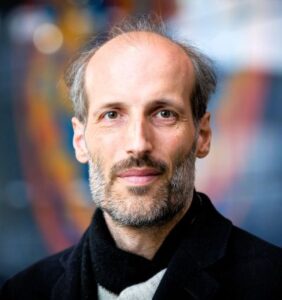The Heilbronn Institute for Mathematical Research is delighted to welcome Martin Hairer (Imperial College), who will deliver the next Heilbronn Distinguished Lecture Series (DLS) on 10 – 12 February 2026

Martin Hairer, Professor of Pure Mathematics at EPFL and at Imperial College London, is globally renowned for his breakthrough work at the intersection of analysis and probability. In 2014 he won the Fields Medal for visionary work which introduced a radical new way of constructing solutions for certain nonlinear stochastic partial differential equations which had been intractable before, and which are of great importance in particular to physics.
Please register here – registration is essential.
For practical information please email the Heilbronn events team at heilbronn-coordinator@bristol.ac.uk
Lecture 1: Tuesday 10th February 2026, 15:30 – 16:30 (Colloquium), followed by a drinks reception
Venue: LG.02, Fry Building
Yang-Mills and the mass gap
We will give an introduction to the probabilistic formulation of the Yang-Mills millenium problem and discuss some of the reasons why it is so hard. We will then discuss some of the progress made in this direction over the past five years or so and some hurdles that still need to be overcome.
Lecture 2: Wednesday 11th February 2026, 16:00 – 17:00
Venue: G.10, Fry Building
On renormalisation and symmetries
In this lecture, we will delve deeper into the notion of ‘renormalisation’. We will present a typical result from the theory of regularity structures showing how, despite of the presence of renormalisation, one can obtain surprisingly robust continuity statements for singular stochastic PDEs. We will then exploit these to show why theories admitting a “formal” symmetry (like gauge covariance for Yang-Mills) can often be renormalised in such a way that the resulting finite theory still admits that symmetry even though the counterterms arising from renormalisation could potentially break it.
Lecture 3: Thursday 12th February 2026, 14:30 – 15:30
Venue: G.10, Fry Building
Spectral gap for the infinite-volume $\Phi^4_3$ measure at high temperature
We consider the natural (Langevin) dynamic for the $\Phi^4_3$ measure in infinite volume as a toy model for the Yang-Mills dynamic. It is shown that, at high enough temperature, this dynamic is exponentially ergodic and obeys a “one force, one solution” principle. This provides a particularly strong form of uniqueness and stability for the corresponding invariant measure. Some consequences are rotation invariance and a “mass gap” for the $\Phi^4_3$ measure.



 The Heilbronn Annual Conference is the Institute’s flagship event. It takes place over two days and it covers a broad range of mathematics, including algebra, combinatorics, data science, geometry, number theory, probability, quantum information. It brings together members of the Institute, distinguished visiting speakers, and other members of the UK mathematical community. This year we welcome eight distinguished speakers, to deliver lectures intended to be accessible to a general audience of mathematicians.
The Heilbronn Annual Conference is the Institute’s flagship event. It takes place over two days and it covers a broad range of mathematics, including algebra, combinatorics, data science, geometry, number theory, probability, quantum information. It brings together members of the Institute, distinguished visiting speakers, and other members of the UK mathematical community. This year we welcome eight distinguished speakers, to deliver lectures intended to be accessible to a general audience of mathematicians.